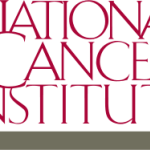- Industry: Government; Health care
- Number of terms: 6957
- Number of blossaries: 0
- Company Profile:
The National Cancer Institute (NCI) is part of the National Institutes of Health (NIH), which is one of 11 agencies that compose the Department of Health and Human Services (HHS). The NCI, established under the National Cancer Institute Act of 1937, is the Federal Government's principal agency for ...
A pentafluorophenylsulfonamide compound with potential antineoplastic activity. T900607 inhibits tubulin polymerization by binding irreversibly to colchicine binding sites, resulting in cell cycle arrest and apoptosis.
Industry:Pharmaceutical
A pentapeptide originally isolated from the marine mollusk Dolabella auricularia with potential antineoplastic activity. Binding to tubulin, dolastatin 10 inhibits microtubule assembly, resulting in the formation of tubulin aggregates and inhibition of mitosis. This agent also induces tumor cell apoptosis through a mechanism involving bcl-2, an oncoprotein that is overexpressed in some cancers.
Industry:Pharmaceutical
A pentacyclic lupane-type triterpene derivative of betulin (isolated from the bark of Betula alba, the common white birch) with antiinflammatory, anti-HIV and antineoplastic activities. Betulinic acid induces apoptosis through induction of changes in mitochondrial membrane potential, production of reactive oxygen species, and opening of mitochondrial permeability transition pores, resulting in the release of mitochondrial apogenic factors, activation of caspases, and DNA fragmentation. Although originally thought to exhibit specific cytotoxicity against melanoma cells, this agent has been found to be cytotoxic against non-melanoma tumor cell types including neuroectodermal. And brain tumor cells.
Industry:Pharmaceutical
A pegylated formulation of a recombinant form of human hyaluronidase with potential antitumor activity. Upon intravenous administration, pegylated recombinant human PH20 degrades hyaluronic acid (HA) coating tumor cells, which may result in the inhibition of tumor cell growth. In addition, the degradation of HA may result in a lowering of the interstitial fluid pressure (IFP), allowing better penetration of chemotherapeutic agents into the tumor bed. HA is a glycosaminoglycan found in the extracellular matrix (ECM) that is frequently overproduced by various tumor cell types. The presence of HA in tumors correlates with increased tumor cell growth, metastatic potential, tumor progression, increased resistance to chemotherapeutic agents, and an elevation in tumor IFP.
Industry:Pharmaceutical
A pegylated, cross-linked, humanized divalent-Fab' antibody fragment directed against vascular endothelial growth factor receptor-2 (VEGFR-2) with potential antiangiogenic and antitumor activities. Pegylated anti-GFR antibody fragment binds to and inhibits VEGFR-2, which may inhibit angiogenesis and tumor cell proliferation. Multivalent Fab' antibody fragments may exhibit improved retention and internalization properties compared to their parent IgGs.
Industry:Pharmaceutical
A patient-specific cancer vaccine directed against the soluble protein idiotype of an individual follicular lymphoma with potential antineoplastic activity. A patient-specific follicular lymphoma-derived anti-idiotype vaccine may be composed of a patient-specific, synthetic idiotype-related peptide (such as one corresponding to a hypervariable region of an IgG heavy chain) conjugated to the immunostimulant carrier protein keyhole limpet hemocyanin (KLH). Upon administration, this vaccine may induce an idiotype-specific cytotoxic T-lymphocyte (CTL) response against follicular lymphoma cells expressing the idiotype, resulting in tumor cell lysis.
Industry:Pharmaceutical
A parenteral iron solution containing ferric iron complexed with carboxymaltose polymers, used in parenteral iron-replacement therapy. Upon administration, ferric carboxymaltose is removed from plasma by the reticuloendothelial system. Subsequently, ferric iron binds to transferrin or is stored as ferritin. Transferrin-bound iron is transported in the plasma to the liver, spleen and bone marrow, where it is incorporated into hemoglobin, and to muscle, where it is incorporated into myoglobin.
Industry:Pharmaceutical
A pan-specific, recombinant, fully human monoclonal antibody directed against human transforming growth factor (TGF) -beta 1, 2 and 3 with potential antineoplastic activity. Fresolimumab binds to and inhibits the activity of all isoforms of TGF-beta, whcih may result in the inhibition of tumor cell growth, angiogenesis, and migration. TGF-beta, a cytokine often over-expressed in various malignancies, may play an important role in promoting the growth, progression, and migration of tumor cells.
Industry:Pharmaceutical
A panadenocarcinoma murine monoclonal antibody with potential antineoplastic activity. Monoclonal antibody m170 may be conjugated with a radioactive element and used in radioimmunotherapy (RIT), a procedure that uses a tumor-specific monoclonal antibody to target radiation to cancer cells.
Industry:Pharmaceutical
A pan alpha-v human monoclonal antibody that recognizes alpha-v beta-1, alpha-v beta-3, alpha-v beta-5, and alpha-v beta-6 integrins with antiangiogenic and antitumor activities. Intetumumab competitively binds to and blocks both alpha-v beta-3 and alpha-v beta-5 integrins, resulting in inhibition of integrin-mediated tumor angiogenesis and tumor growth. Integrins facilitate the adhesion of stimulated endothelial cells to the extracellular matrix (ECM); trigger the secretion of ECM-rearranging proteases; and propagate signaling events that promote the survival and differentiation of cells in newly formed vasculature.
Industry:Pharmaceutical
